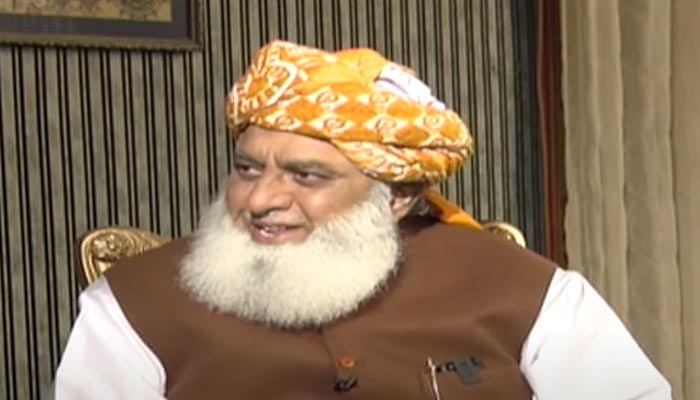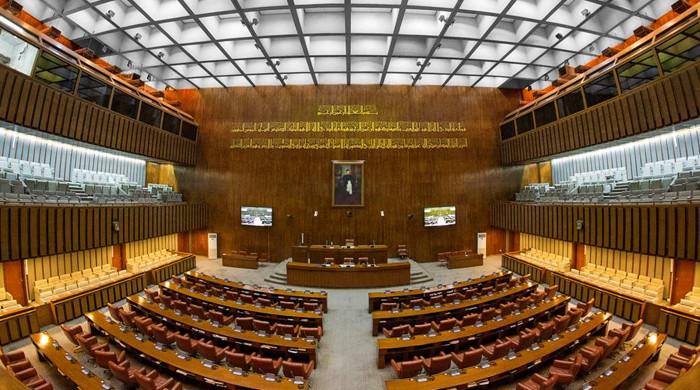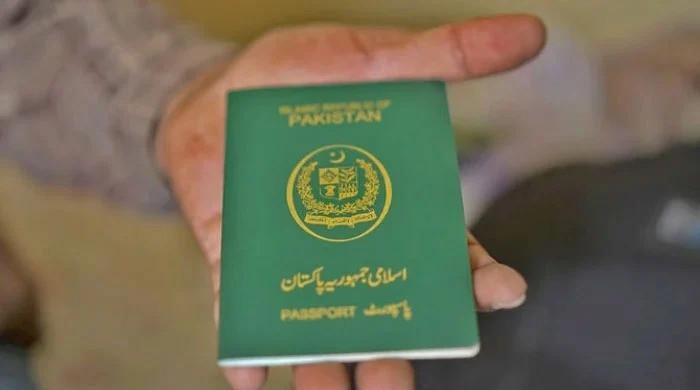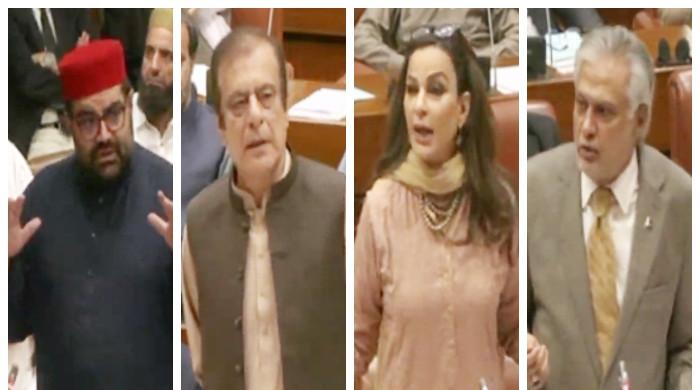Fazl hopes Islamabad march 'won't be needed as govt to notify madrassa bill very soon'
"Now there is no justification for calling a joint session on the bill again," says JUI-F chief
December 21, 2024

- Fazl says party reached agreement with govt on few issues.
- There is no justification for calling joint session again, he adds.
- He says govt has assured that it will issue notification soon.
Jamiat Ulema-e-Islam-Fazl (JUI-F) chief Maulana Fazlur Rehman on Saturday hoped that the federal government would approve the Societies Registration (Amendment) Bill 2024, also known as madrassa registration law, after fulfilling the legal formalities.
Speaking on Geo News programme 'Jirga', the JUI-F emir said: "I hope that neither we will need to march on Islamabad nor [the government] will require a joint session."
Fazl's comments come after the government, following the meeting between Prime Minister Shehbaz Sharif and JUI-F chief, reportedly "accepted all demands of the Ittehad Tanzeemat-e-Madaris Deenia (ITMD)" regarding the contentious madrassa registration bill.
The development came during the meeting between PM Shehbaz and a Fazl-led delegation a day ago, sources closer to the JUI-F told Geo News, adding that the government "assured to register all madrassas under Societies Registration Act, 1860".
In today's interview, the JUI-F emir said that the talks with government have been positive wherein it admitted that the party's demands were strong. "The government has assured that it will issue a notification soon," he added.
Fazl said his party has reached an agreement on a few issues, adding that one of the points of the bill was that the status of the registration of the madrasas will remain unchanged.
The other points were that bank accounts of all madrassas would be opened and the students of the seminaries should be given visas to study abroad.
The senior politician said that the National Assembly has approved the bill and the president had sent an eight-point objection to the assembly on November 13.
"Now there is no justification for calling a joint session on the bill again," said Fazl.
The disputed madrassa bill, which has already been passed by both houses of parliament, became a bone of contention between the JUI-F and the government after President Asif Ali Zardari returned it to the National Assembly with certain objections.
Its enactment was part of an agreement between the government and the religio-political party for supporting the 26th Amendment, Fazl had said previously.
Following its approval from parliament, the bill now requires the president’s assent to become law but President Asif Ali Zardari had returned the bill, citing legal objections. According to the Constitution, the bill must be tabled before a joint sitting after the president refuses to sign.
As per the sources, the president raised eight objections over the bill Societies Registration (Amendment) Bill 2024, under which madrassas would be registered.
President Zardari reportedly expressed fear that if the madrassa bill turns into a law, seminaries will be registered under the Societies Act, which may lead to imposition of Financial Action Task Force (FATF), Generalised Scheme of Preferences Plus (GSP+), and other sanctions on the country, according to The News report.
He objected that by registering madrassas as societies, they could be used for purposes other than education; there was a contradiction in the definition of madrassa in various clauses of the bill.
The president suggested to the members of the assembly that international issues should be taken into account while drafting a bill related to madrassas.











